Our Team
Leadership
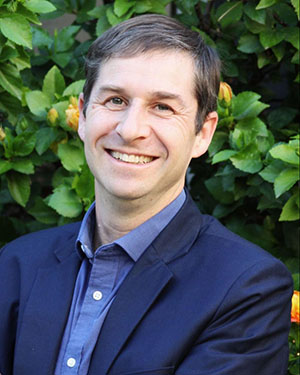
Eyal Oren, PhD
Director, Principal Investigator
Dr. Eyal Oren is the Principal Investigator of the San Diego State University Prevention Research Center and Director of the School of Public Health. He is also a Professor of Epidemiology, a core-investigator at the Institute for Behavioral and Community Health and associate member at Moores Cancer Center . He is trained as an infectious disease, respiratory and social epidemiologist with particular expertise in climate change, respiratory health, and numerous projects in COVID- 19, tuberculosis, flu, tobacco exposure and asthma. He has also worked at the interface of infectious etiologies and chronic disease outcomes, particularly cancers. He has extensive experience in epidemiological and community-based research, working on the effective adoption of interventions in the community as well as in developing evidence-based strategies and practices from secondary data analyses and novel data sources. Dr. Oren has long-term experience in working with diverse groups, with specific projects including COVID-19 testing strategies, disease screening among migrant farmworkers and refugees (along the U.S.-Mexico border and within the U.S.), and asthma among children. He has published over 150 peer-reviewed publications and book chapters and holds an undergraduate degree in Neurobiology and Behavior from Cornell University and PhD and MS degrees in Epidemiology from the University of Washington. A Fun Fact: He has spent at least a few months living on every continent, barring (so far) Antarctica.
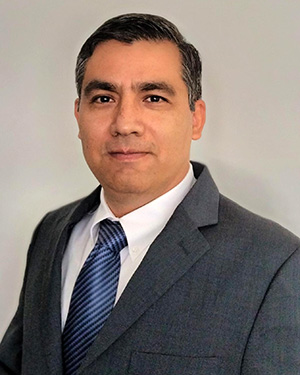
Miguel Zavala, PhD
Research Project Principal Investigator
Dr. Miguel Zavala is an Associate Professor in the School of Public Health at San Diego State University Imperial Valley campus. He received his Ph.D. in Atmospheric Sciences from the Massachusetts Institute of Technology and a M.Sc. from the Tecnológico de Monterrey in Mexico. He has experience in addressing environmental and public health research questions relevant to underrepresented communities at the US-Mexico border region. His research topics include air quality modeling, low-cost community air sensors, emissions inventory development, source apportionment, air toxics monitoring, characterizing personal exposure and health disparities within local communities, assessing the pollution impacts of US-Mexico Ports of Entry, and others. He has experience engaging and interacting with members from under-represented communities and low-income participants for developing and implementing public outreach activities. His expertise includes the application of air quality models for understanding the physical and chemical processes that drive air pollution and the estimation of air quality and public health impacts, the development and evaluation of criteria, air toxics, and greenhouse gasses emissions inventories of urban areas, the development of novel measurement and analytical techniques to evaluate the impacts of short-lived climate pollutants from key emission sources, evaluation of air quality management programs, and analysis of meteorological processes that control air pollution. A fun Fact- Miguel enjoys diving into history books, strumming her guitar for a little musical escape, and filling the kitchen with the warm, sweet aroma of freshly baked Mexican bread.
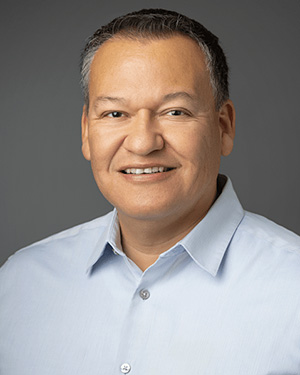
Luis Olmedo
Executive Director, Comité Cívico del Valle
Executive Director of Comité Cívico del Valle, an organization located in Imperial Valley whose mission focuses on addressing environmental health related problems in the Imperial and Coachella Valleys. A community activist advising local, regional, and state programs on environmental health issues affecting Imperial County and Eastern Coachella Valley, Mr. Olmedo is a member of various state and national networks that focus on environmental policy and regulation. His organization has partnered with academic and research institutions to expand environmental research in Imperial County who published studies on Border Asthma and Allergies, Perchlorate Biomonitoring, and Agricultural Burning. He is currently partnering with San Diego State University and the California Department of Public Health on air monitoring and asthma.
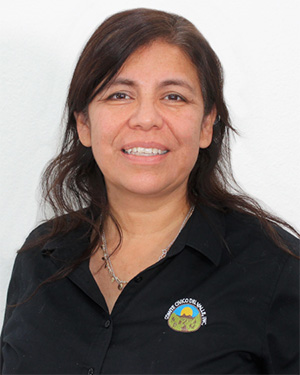
Esther Bejarano
Director of Health Programs, Comité Cívico del Valle
Ms. Bejarano has extensive experience working as a lead promotora in Imperial County. She is bilingual and bicultural and possesses over 15 years of experience working as a promotora on asthma health-related studies. Ms. Bejarano’s current assignments include managing community health workers (CHW’s) for the Respira Sano Asthma Intervention funded by the CalEPA EJ Action grant. Ms. Bejarano has experience working with schools, health care providers, Imperial County Air Quality District and in the area of public health and education.
Co-Investigators
Paula Stigler Granados, PhD
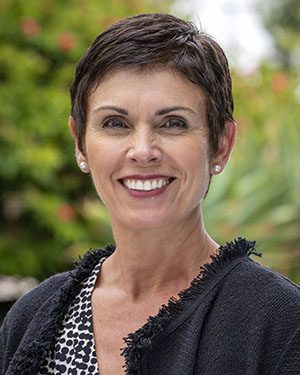
Elva Arredondo, PhD
Co-Lead Investigator
Dr. Arredondo’s research is in the area of health disparities. Her research focuses on the development, implementation and evaluation of multilevel interventions that improve the health of racial/ethnic minorities and socially/economically disadvantaged communities. Dr. Arredondo’s overarching goal is to translate and scale up evidence-based interventions that promote physical activity and cancer screening in diverse communities. Fun fact: Have run several marathons, including the NY marathon.
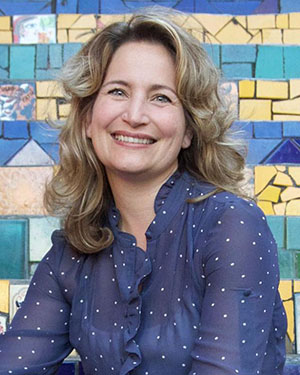
Erika Robb Larkins, PhD
Co-Investigator
Erika Robb Larkins is Professor of Anthropology, Behner Stiefel Chair of Brazilian Studies, and Director of the Center for Brazilian Studies at San Diego State University. She is the author of two books: The Spectacular Favela: Violence in Modern Brazil (University of California Press, 2015) and The Sensation of Security: Private Guards and Social Order in Brazil (Cornell University Press, 2023). She has published widely on race, gender, and politics in Brazil and the U.S. Her current work focuses on the intersection of extreme heat, environmental racism, and inequality in Rio de Janeiro and the Imperial Valley, California. A Fun Fact: She is an avid reader of fiction and reads two novels a week (at least). She also loves hiking, preferably in redwoods, and baking sweets.
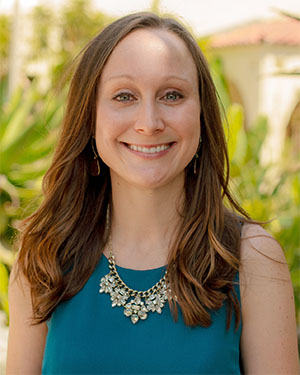
Kelsey Dickson, PhD
Co-Lead Investigator
Kelsey Dickson, Ph.D.(she/her/hers) is licensed child clinical psychologist, Associate Professor at San Diego State University, and Research Scientist at the Child and Adolescent Services Research Program. Her program of federally-funded research aims to improve the translation and implementation of evidence-based interventions (EBIs) in community settings, with an emphasis on targeting key mechanisms underlying developmental and mental health conditions. Her work also aims to im-prove equity in access to quality care for underserved or underrepresented populations, including through the application of implementation science frameworks and methods to do so. For this project, she brings her expertise in the application of community-partnered implementation methods to adapt and test the proposed evidence-based intervention targeting extreme heat (the Phoenix Heat Plan). A fun fact- Kelsey is a native of the Pacific Northwest and avid outdoor enthusiast. She recently competed in a multi-day relay race that spanned from Mt. Hood to the Oregon Coast in Oregon- over 200 miles!
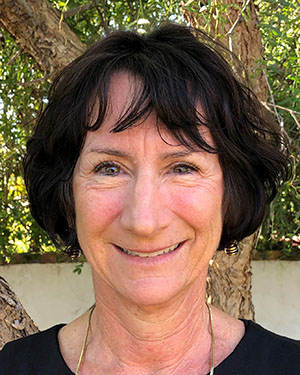
Penelope Quintana
Co-Investigator
Dr. Penelope J.E. (Jenny) Quintana is a Professor in the division of Environmental Health at the School of Public Health at San Diego State University (SDSU). She obtained her PhD in Environmental Health Sciences at UC Berkeley, her MPH in Environmental and Occupational Health at SDSU, and her BS in Genetics from UC Davis. She has a research focus on environmental exposures to children and vulnerable populations at the US-Mexico border. She is a Co-Principal Investigator for the Healthy Water, Healthy Air Study investigating pollution from the Tijuana River in relation to nearby community health concerns. She is the Research Project Leader for the SDSU HealthLINK Center, studying indoor exposures to children living near the polluted Tijuana River and community-appropriate interventions to protect health. She supports US-Mexico border community efforts to monitor their air through deployment of low-cost air sensors in the San Ysidro Air Monitoring Network. She is the author of a seminal report drawing attention to the long northbound wait times and lines of idling vehicles at US-Mexico Ports of Entry as source of pollution for surrounding communities. She has assessed children’s exposure to toxicants in house dust and on surfaces, especially residual tobacco toxicants remaining after smoking has taken place, known as thirdhand smoke. She is the PI of an ongoing study to assess whether silicone wristbands worn by children can accurately detect tobacco and cannabis smoke exposure. A member of the California Thirdhand Smoke Research Consortium, she also serves as a lead researcher with the Thirdhand Smoke Resource Center and the Center for Tobacco and the Environment. She serves as a Scientific Guidance Panel member for the California Environmental Contaminant Biomonitoring Program. A Fun Fact: She is trying to hike all the completed sections of the Coast to Crest trail in San Diego, which goes from Del Mar beach to Volcan Mountain.
Barbara Bailey, PhD
Staff and Students
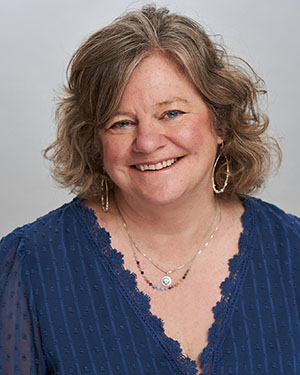
Leanne Jacobson
Evaluation Lead
Leanne Jacobson is a seasoned evaluator with over 20 years of extensive experience in designing, implementing, and managing a wide range of evaluations. Her expertise encompasses informal and community-based programs, K12 through higher education, community engagement, youth, social emotional development, STEM, and environmental education. Leanne often employs a mixed methods approach. She is proficient in both qualitative and quantitative methods, including storytelling, surveys, observations, interviews, data analysis, visualization, and logic model development. She demonstrates exceptional project management skills, collaborates effectively with stakeholders, and produces detailed reports tailored to client requirements. Currently, holds the position of Evaluation Lead at the San Diego State University Institute for Public Health. Her personal philosophy underscores the importance of relationship-building, mixed views from all spaces and using evidence-based practices, with a focus on amplifying the voices of those who are often overlooked. Committed to advancing belonging and continuous professional growth, Leanne leverages her skills, experience, and dedication to create impactful evaluations that support all communities and foster positive change. For the PRC, Leanne serves as the evaluator. As the evaluator. Currently she is working with SDSU faculty, CCV and CAB members on the development of a needs assessment to be used with community members, community leaders and others located throughout Imperial County. The purpose of the needs assessment is to identify the populations most vulnerable to heat exposure, identifying adaptation strategies and implementation strategies.
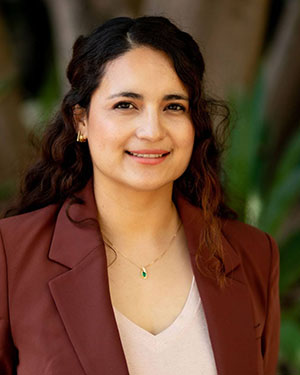
Carolina Lopez de la Torre, MPH, CPH
Deputy Director
Carolina Lopez de la Torre is a dedicated public health professional with over fifteen years of experience advancing community-based research and health promotion initiatives in underserved populations in southern California. Guided by cultural humility and emotional intelligence, Carolina has dedicated her career to building healthier communities through evidence-based programs and collaborative partnerships. As Deputy Director at the SDSU Prevention Research Center, Carolina oversees the center’s operations, research activities, and network collaborations. Her leadership is informed by eight years of management experience, during which she has excelled in team development, program planning, and program implementation. Her previous work has been focused on COVID-19 prevention, HIV prevention, harm reduction, chronic disease prevention, having managed and supervised multidisciplinary teams, coordinated outreach, and developed culturally competent educational materials. Carolina holds a Master of Public Health at San Diego State University. Her scholarly contributions include co-authoring peer-reviewed manuscripts on behavioral interventions and cancer screening among Latino communities. Outside of her work, Carolina enjoys pursuing artistic endeavors such as drawing and painting.
Mariel Ortega, MLIS
Communication, Dissemination and Translation Lead
Mariel Ortega is the Communication, Dissemination, and Translation Lead at the San Diego State University Imperial Valley Prevention Research Center (SDSU-IV PRC). She leads efforts to connect academic research with the broader community through clear, inclusive, and bilingual communication strategies. In her role, Mariel develops and implements outreach plans, manages the PRC’s website and social media platforms, and translates research findings into practical tools that support heat-health awareness and resilience across Imperial County. She also coordinates community engagement activities and fosters partnerships with local organizations to ensure that PRC initiatives reflect regional needs. In addition, she mentors and supervises student research assistants involved in communication and dissemination projects, helping them develop skills in public health outreach and research translation. With nearly a decade of experience in libraries and community education, Mariel has worked in public, academic, school, and correctional settings, where she developed literacy programs and collaborated with diverse populations, including youth, immigrants, and incarcerated individuals. These experiences shaped her commitment to equitable information access and community-centered engagement, values that continue to guide her work at the PRC. Mariel earned her Master’s in Library and Information Science from San José State University and her Bachelor’s in Psychology from San Diego State University. Her background blends communication, behavioral science, and outreach, allowing her to bridge research and real-world application effectively.
Michelle Solorio
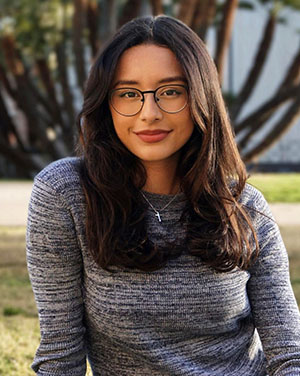
Jaylene Camarillo
Research Assistant
Jaylene Camarillo is a fourth-year undergraduate student at UC San Diego, majoring in Public Health Epidemiology with a minor in Chicanx and Latinx Studies. She currently serves as a Research Intern in the SDSU-UCSD CREATE Partnership Program, where she works under the mentorship of Dr. Eyal Oren and Dr. Miguel Zavala on the Taking on the Heat project. Jaylene's contributions to the project include drafting materials for the SDSU IV-PRC Community Advisory Board, conducting literature reviews, and applying research methodologies to examine environmental health issues in the Imperial Valley. Her passion for research began in 2020, leading her to explore topics such as cancer health disparities, nutrition, mental health, and most recently, environmental health. This fall, Jaylene plans to continue her research interests in graduate school, where she will study Global Health Epidemiology. Beyond her academic pursuits, she is deeply committed to humanitarian work, which aligns with her passion for global engagement. A fun fact about Jaylene is that she had the opportunity to travel to Cambodia, which further expanded her perspective on global health and community development.
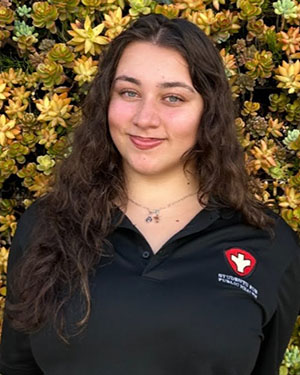
Thea Enache
Research Assistant
Thea is an undergraduate student at San Diego State University’s main campus, pursuing dual majors in Public Health and Computer Science with minors in Statistics and Mathematics. There, she currently serves as President of Students for Public Health and as Events Coordinator for the Association for Computing Machinery (ACM). Her prior research focuses on leveraging computational methods to address public health challenges, with experience spanning computer vision for accessible healthcare delivery, deep learning for drug discovery, and epidemiological modeling. She also works in Public Health Informatics and Applied Data Analysis at Proactive FQHC, where she aims to utilize data-driven approaches to promote equitable healthcare outcomes for a clinical trial in addition to a number of other projects. Drawing on her cross-cultural background, she is deeply interested in global perspectives on health and data science, and is passionate about bridging technology and public health to develop innovative, globally informed solutions to complex health issues. A fun fact: Thea has traveled to 43 countries and speaks four languages.
Nirvana Encinas
Alissa Martens Gonzalez
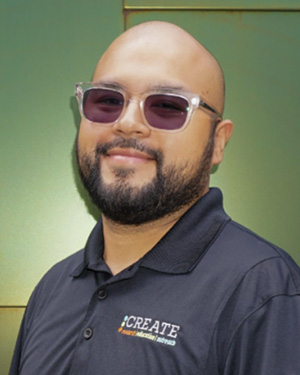
Alvaro Medina Perez
Research Assistant
Alvaro is a public health advocate and passionate student, in his last year of undergraduate studies coursing through the SDSU BSc in Public Health with emphasis in Environmental Science. His passion for health advocacy has led him to earn the Exercise Science, Wellness, and Sport/Public Health from Imperial Valley College in 2024 as he graduated with an AS in Public Health. Alvaro is also a licensed grassroots US Soccer Federation coach, which, bundled with his decades-long sporting experience and health expertise, gave him the chance to function as a basketball coach for the same high school he played for and attended in his home town of El Centro, CA. As a CREATE Scholar, an SDSU staff member, and a curious scientist, Alvaro focuses on skin cancer, UV exposure, and healthcare disparities in and around the Imperial Valley. He is an active member in the Imperial Valley community. Fun Fact: Alvaro enjoys eating ice cream, admiring animals, and bringing up song-lyrics relating to random phrases in conversations. As a student-mentor, Alvaro is easily approachable and would love to have a chat with you!
Stay Connected!
The SDSU Imperial Valley Prevention Research Center is a community-driven research center committed to improving the health and well-being of Imperial Valley, including its most vulnerable populations.
Calexico, CA 92231
